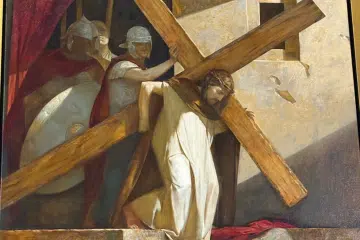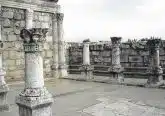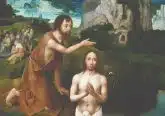Lord’s Day Reflection: Virtue without charity
By Abbot Marion Nguyen
“All who exalt themselves will be humbled, and all who humble themselves will be exalted.”
Jesus tells this parable “to some who were convinced of their own righteousness and despised everyone else.” Notice how He begins—not with pride, but with vanity. Pride, as Jesus concludes, will be humbled; but vanity is its seed. Vanity is the soul’s first intoxication with its own reflection. It delights not in truth but in appearance; not in substance but in impression. The vain person feeds off how others see them and so must constantly compare, measure, and elevate themselves at another’s expense. It is a subtle form of schadenfreude—a satisfaction in another’s weakness because it confirms one’s illusion of strength.
In this light, the Pharisee in the parable is not entirely false in his claims. He fasts twice a week, pays tithes faithfully—an impressive ten percent when most give a fraction—and avoids serious sins like adultery or extortion. These are good and even commendable works. The tragedy, however, is not in what he does, but in what he believes about himself. As St. John Chrysostom notes, his sin lies in attributing to himself what belongs to God. He gives thanks not for grace received, but for superiority achieved. His observations are factually true, but spiritually worthless—because they are detached from charity. At its heart lies the old heresy of Pelagianism: the illusion that one can achieve righteousness by one’s own power rather than receive it as a gift. Thus, he condemns both the absent and the present—“greedy, dishonest, adulterous, or even like this tax collector.” In so doing, he falls into the deepest form of lying: the lie of self-sufficiency.
St. Paul reminds us, “What do you have that you did not receive?” (1 Cor 4:7). The Pharisee has forgotten this. Vanity has blinded him to the Giver, so that his virtues, detached from love, become instruments of condemnation. As St. Paul tells the Corinthians, even if we give away all we possess and deliver our bodies to be burned, but have not love, we gain nothing (cf. 1 Cor 13). The Pharisee’s memory is selective—he recalls his own virtue but forgets God’s mercy.
The tax collector, by contrast, has no virtues to parade. He stands at a distance, beats his breast, and utters the only true prayer left to a broken soul: “God, be merciful to me, a sinner.” Admitting you are a sinner—when clearly you are one—is not exactly the highest form of humility, but it is the beginning of it. It is not lofty, but it is truthful. The Desert Fathers teach that humility begins with this awareness: that God alone sees in secret (cf. Mt 6:6). Where the Pharisee’s memory is selective, the tax collector’s is complete: he remembers both his sin and God’s mercy. To stand in that truth is to stand before the only gaze that matters, the gaze that penetrates both the façade and the heart.
Abba Moses once said, “Sit in your cell, and your cell will teach you everything.” In the silence of the cell, the masks fall away. There we discover that no one is perfect outside of Christ, and even when we have grown in virtue, there was a time when we were not so. The memory of our former poverty guards us from vanity.
The monastic remedy to vanity, then, is not to deny the good we have received, but to remember its source and its purpose. Every virtue is meant to deepen our dependence on God and our compassion for others. When our virtue becomes a mirror for self-admiration or a club for condemnation, we have wandered from the path.
Vanity is not merely a personal fault; it is a societal one. Our age is rife with moral grandiosity—each side convinced of its own purity and contemptuous of the other. In this climate, Jesus’ parable becomes a remedy not only for the soul but for our broken world. For only the humble can build communion; only the one who knows his need for mercy can extend mercy.
The Pharisee left the temple satisfied with himself but empty of grace. The tax collector left broken yet justified—because he stood in truth before the God who “sees in secret” and exalts the broken and contrite heart.













